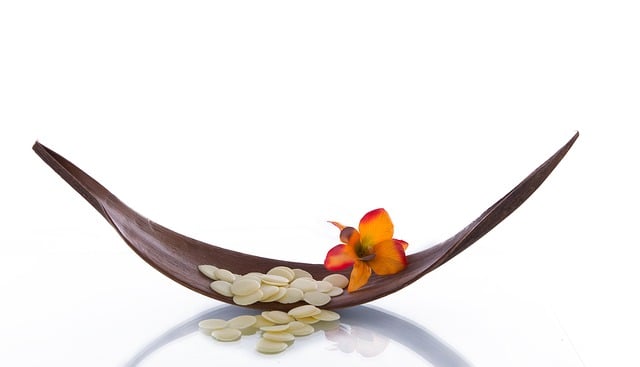Gratitude, fostered through mindfulness techniques like reflection and meditation, significantly enhances emotional well-being by reducing stress, anxiety, and depression while increasing life satisfaction and resilience. Regular gratitude exercises, such as writing down three good things or body scans, promote a deeper connection between the body, mind, and spirit, allowing individuals to appreciate small joys and blessings often overlooked in daily life. Tracking progress through journaling and mindfulness helps maintain a grateful perspective by identifying patterns of ungrateful feelings and responding rather than reacting to negative emotions, ultimately sustaining gratitude during challenges.
“Unleash the power of gratitude for enhanced emotional well-being. This comprehensive guide explores how cultivating thankfulness can transform your mental health. We delve into the science behind gratitude and its profound impact on our lives, offering practical strategies through mindfulness techniques. Learn effective exercises to integrate into your daily routine, ensuring consistency. Discover methods to track your progress and sustain a grateful mindset for long-lasting happiness. Embrace a healthier, more positive you.”
- Understanding Gratitude and its Impact on Emotional Well-being
- Mindfulness Techniques for Practicing Gratitude
- Incorporating Gratitude Exercises into Daily Routine
- Tracking Progress and Sustaining a Grateful Attitude
Understanding Gratitude and its Impact on Emotional Well-being

Gratitude is a powerful emotion that can significantly influence our overall emotional well-being. It’s more than just feeling thankful; it’s a mindset shift that involves acknowledging and appreciating the positive aspects of life, no matter how small. This simple act of recognizing what we’re grateful for has been shown to have profound effects on mental health and happiness.
When we practice gratitude, we actively focus on the bright spots in our lives, fostering a sense of contentment and optimism. Mindfulness techniques often intertwine with gratitude, encouraging individuals to be present in the moment and savor the good. This practice can reduce stress, anxiety, and depression while promoting resilience and improving overall life satisfaction. By incorporating gratitude exercises into daily routines, folks can cultivate a deeper connection with their emotions and foster a more positive outlook on life.
Mindfulness Techniques for Practicing Gratitude

Practicing gratitude through mindfulness techniques can significantly enhance emotional well-being. Mindfulness involves focusing on the present moment without judgment, and when combined with gratitude, it becomes a powerful tool for cultivating positivity. One simple technique is to take a few minutes each day to sit quietly and reflect on the things you’re grateful for. You can start with everyday aspects like having a roof over your head or a warm meal, then expand to relationships, experiences, and even challenges that have taught you valuable lessons.
Mindfulness meditation also encourages paying attention to bodily sensations and emotions as they arise, allowing you to appreciate the interconnectedness of your body, mind, and spirit. By regularly engaging in these mindfulness techniques, individuals can improve their ability to recognize and express gratitude, fostering a more optimistic outlook on life and strengthening their emotional resilience.
Incorporating Gratitude Exercises into Daily Routine

Incorporating gratitude exercises into your daily routine is a powerful way to enhance emotional well-being and cultivate a positive mindset. Start by setting aside just a few minutes each day to reflect on the things you’re grateful for. This can be as simple as writing down three good things that happened during your day or taking a moment to pause and mentally scan your body, noting areas of comfort and gratitude. Mindfulness techniques like these help train your mind to focus on the present moment, fostering a sense of calm and appreciation.
Consistently practicing gratitude can transform your outlook on life. It encourages you to notice the small joys and blessings often overlooked in the busyness of daily life. By making it a habit, you’ll soon find yourself feeling more connected to positive emotions, improving overall satisfaction with life. Incorporating this simple yet effective practice into your routine is an accessible way to take care of your emotional well-being.
Tracking Progress and Sustaining a Grateful Attitude

Tracking your progress is an essential part of cultivating gratitude as a mindset and not just a momentary emotion. Start by setting aside a few minutes each day to reflect on what you’re grateful for, whether it’s through writing in a journal or simply taking a moment to pause and consider your blessings. Over time, you’ll begin to notice patterns – perhaps certain aspects of your life that frequently warrant gratitude, or moments when you find yourself feeling ungrateful. This awareness is crucial for maintaining a grateful attitude.
Mindfulness techniques can be incredibly helpful here. Regular mindfulness practice allows you to stay present with whatever arises within you, including emotions like resentment or self-pity. By observing these feelings without judgment and returning your focus to the breath or a sense of gratitude, you train yourself to respond rather than react. This cultivates a deeper sense of appreciation for life’s simple joys and helps sustain a grateful attitude in the face of challenges.
Gratitude exercises, when incorporated into daily routines through mindfulness techniques, can significantly enhance emotional well-being. By taking time to reflect on what we’re thankful for, we cultivate a deeper sense of contentment and resilience. Mindfulness practices allow us to appreciate the present moment, fostering a more positive outlook. Continuously tracking our progress helps sustain a grateful attitude, leading to improved mental health and overall life satisfaction. Embrace these gratitude exercises as a transformative tool to navigate life’s challenges with increased calmness and joy.
